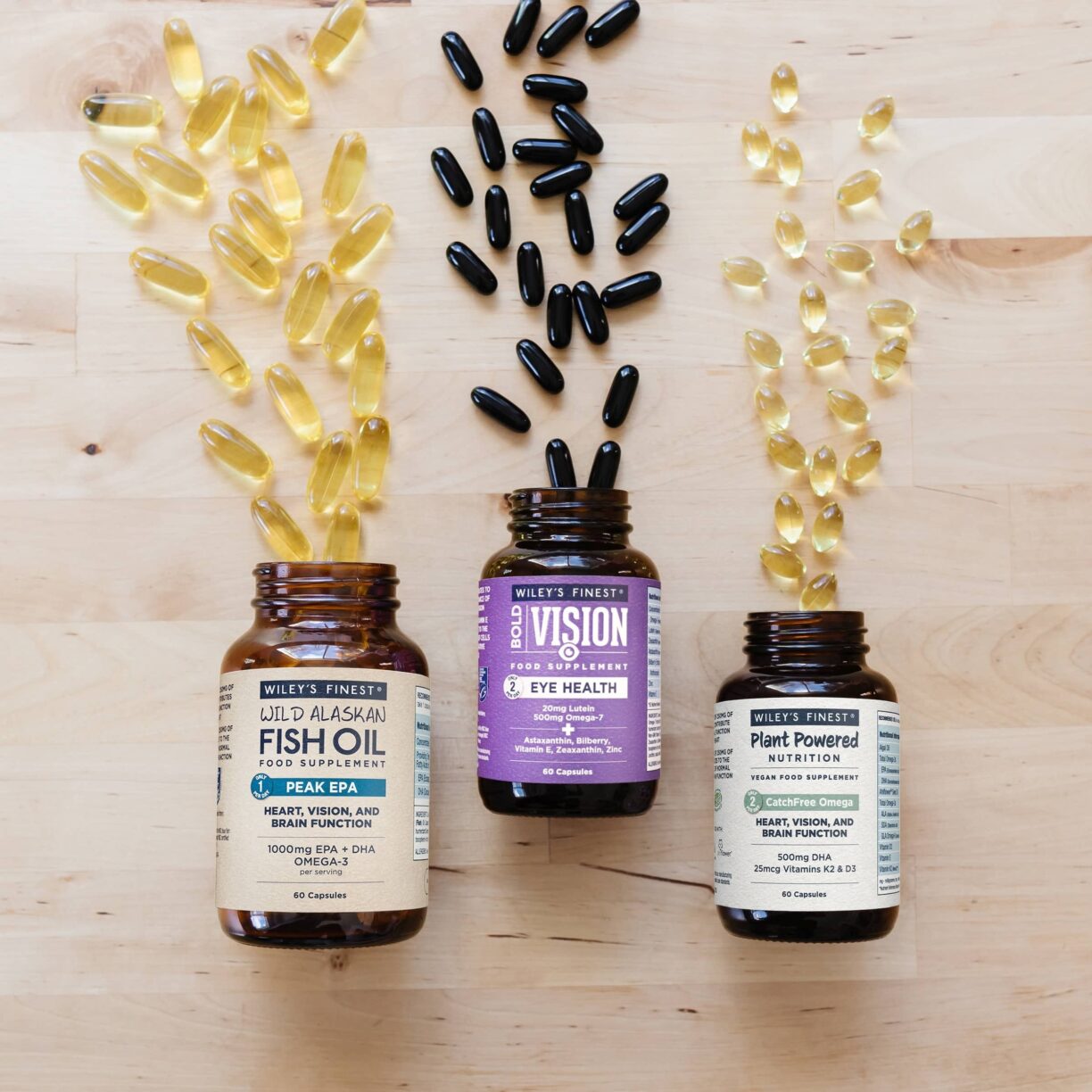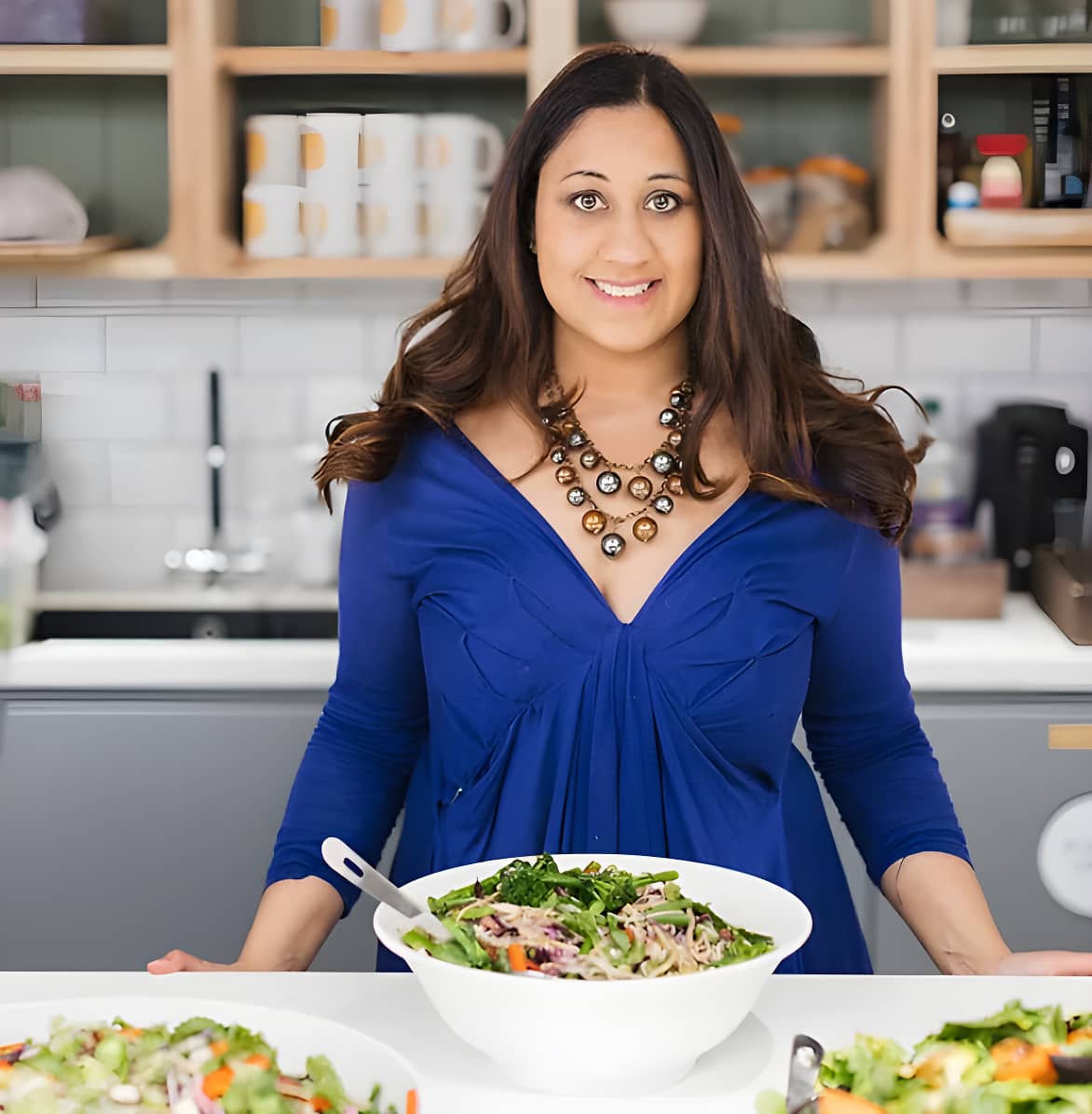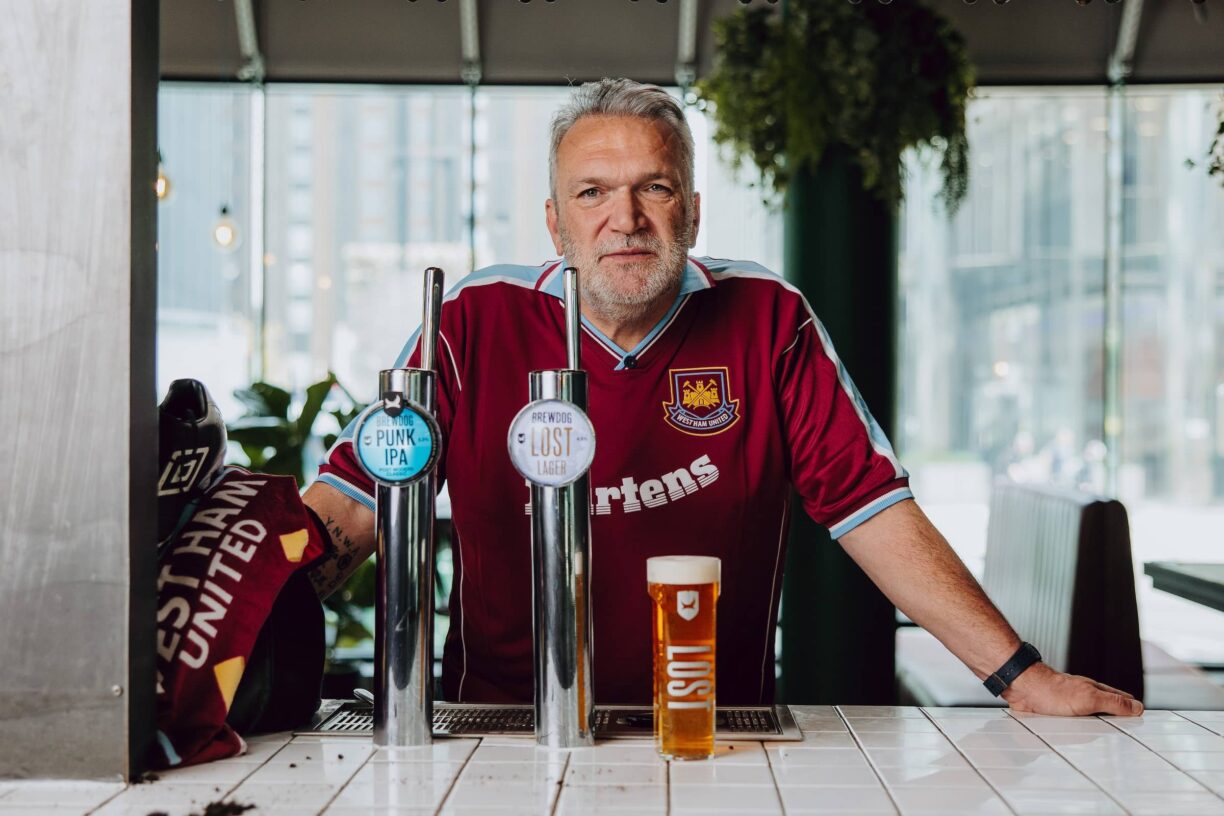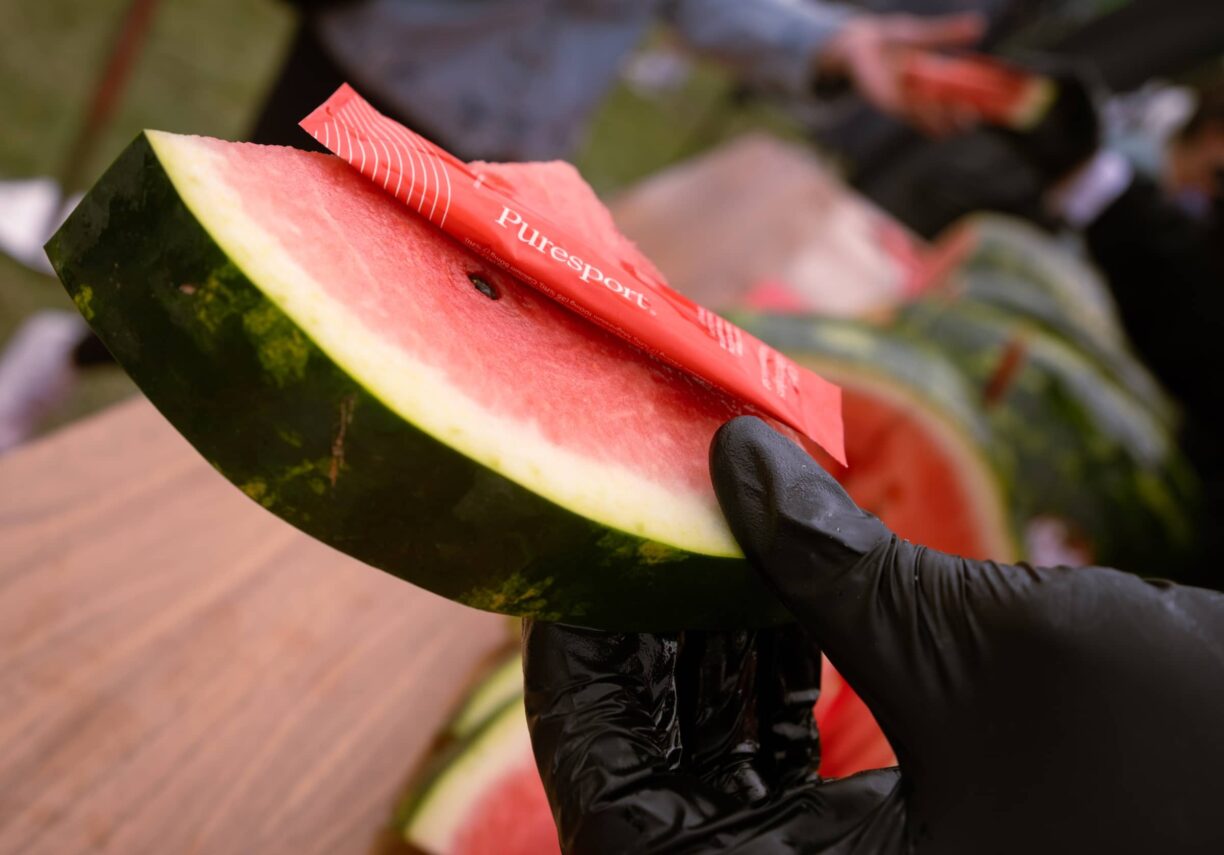On June 8th each year, the world comes together to celebrate World Oceans Day, a United Nations initiative dedicated to recognising the vital role our oceans play in sustaining life on Earth.
Beyond mere celebration, the day is a call to action, urging all of us to safeguard our oceans and marine resources for future generations.
The health of our oceans is facing unprecedented challenges. Coral bleaching, plastic pollution, overfishing, global warming, and various forms of pollution threaten the delicate balance of marine ecosystems.
If current trends continue, it’s predicted that there will be more plastic than fish in the seas by 2050—an alarming statistic that underscores the urgency of taking action.
Sustainable Choices for Ocean Protection

1. Ethical Omega-3 Supplements
“Every cell in your body contains and needs omegas-3, yet the majority of the UK population doesn’t consume enough of these essential fatty acids in their diet and so supplements are needed.
However, many Omega-3 fish oil supplements are often derived from anchovies, sardines, herring and the Peruvian anchoveta – all smaller fish near the bottom of the food chain and so reduction in their numbers exponentially affects the rest of the ocean food chain system.
“So many of the supermarket brands and cheap fish oils are damaging the planet and depleting essential fish stock. For them it’s about bulk and selling cheaply.”
“Bycatch is also a serious global issue where unwanted fish and other marine creatures are trapped by commercial fishing nets during fishing for a different species.
Many are thrown back into the sea dead in order to maintain fishing quotas.”
“Committed to protecting the oceans, Wiley’s Finest is the only brand in the world to offer a full product line made from Marine Stewardship Council-certified 100% Wild Alaskan Pollock.
“The fish oils are ethically sourced from sustainable wild Alaskan fish which can be traced right back to the boat it was caught on – this is essential in preventing overfishing.”
“Independent studies show that Wiley’s Finest has less than 1% bycatch. The fishing nets are fitted with cameras to look out for sea life that have been mistakenly caught so fishermen can quickly set it free.”
“Wiley’s Finest has a range of sustainable fish oil omega-3s for all ages.”
“For vegans and vegetarians, plant-based CatchFree is derived from marine algae and the British-grown ahiflower.
Previously dismissed as a hedgerow weed, ahiflower is a regenerative crop that gives back more to the soil than it takes out and is good for bees and butterflies.
One acre of ahiflower produces as much omega-rich oil as 320,000 anchovies. It has up to four times more effective omega-3s than flax. £29.99 for either softgels or natural mango-flavoured oil. wileysfinest.co.uk“
“Seth McCurry, MSC Commercial Manager, UK & Ireland, said: ‘The challenge of overfishing is substantial.
The Marine Stewardship Council (MSC) blue ecolabel identifies products from fisheries that have met a rigorous, science-based set of requirements for sustainable fishing and can be traced back to their source.
We can all play a part in protecting the future of our oceans and fish stocks by choosing to purchase fish and seafood that has been sustainably sourced.
And it’s not just at fish counters or in the canned goods aisle that we can make the right choice.
Over the last five years, the number of MSC labelled fish oil products available globally has doubled as brands seek to appeal to more environmentally conscious consumers.'”
2. Shop Sustainable Caught Wild Fish and Seafood
“Toral Shah MSc Nut Med AFMCP, Nutritional scientist and founder of The Urban Kitchen says: ‘Knowing the source of your fish and seafood is crucial for preserving the environment and safeguarding our oceans from depletion and contamination.
Sustainable fishing methods prioritise the long-term health of fish and seafood species, while also considering the well-being of the ocean and communities that depend on fishing worldwide.
By tracing back wild line-caught fish and seafood to their origins, we can verify that sustainable practices were used during the catching process.
“Wild-caught fish consume a more varied diet including things like kelp, algae, seaweed and other smaller fish found in their natural environment.
As a result, wild fish contain slightly higher amounts of several vitamins and minerals than farmed fish, but these differences are not likely significant.
“Eating wild-caught salmon and seafood can be a great way of ensuring that we are meeting our vitamin D needs as well as those of other nutrients which support our overall health and immune system including omega-3 fatty acids and selenium.
Omega-3 fatty acids are a type of unsaturated fatty acid that may reduce inflammation throughout the body.
Inflammation in the body can damage the blood vessels and lead to heart disease and strokes.
Eating a diet rich in omega- 3 fatty acids supports reducing inflammation and any associated diseases.
Selenium is a key nutrient which we require for many aspects of our health but one of most important roles is in supporting the initiation of and regulating our immune system.
“Nutrition studies suggest that we should aim for at least two portions of oily fish a week to support not only our immune health but as it may also reduce the risk of cardiovascular disease, stroke, depression, Alzheimer’s disease, and other chronic conditions.
If you are pregnant, or trying to become pregnant or breastfeeding, you will also need to ensure that you are minimising your exposure to mercury and other pollutants found in fish and seafood.
Wild-caught seafood including oily fish is naturally lower in these pollutants than farmed fish due to what they are fed, and the pesticides and other pollutants which make their way into our waterways.
“White fish and shellfish are an important part of a healthy diet as they are also rich in nutrients such as protein, vitamin B12 and low in saturated fats.
They are also a valuable source of calcium, as is wild-caught salmon, and iron, which we require for healthy bones and red blood cells for carrying oxygen around our bodies.
Pollock, haddock and cod provide us with our daily requirement of vitamin B12 which our bodies need for healthy functioning and development of brain and nerve cells, red blood cells and DNA.'”
3. Wear Reef-Safe Sunscreen
“Rising sea temperatures are causing coral reefs to bleach, with the Great Barrier Reef losing more than half its corals in the last 25 years due to climate change.
“Two chemicals often found in sunscreen oxybenzone (described as Benzophenone-3 on European labels) and octinoxate (also described as Ethylhexyl Methoxycinnamate) have been shown to have a range of effects on coral including mortality in developing coral, bleaching of coral and genetic damage to coral and other organisms.
Both chemicals have been shown to induce feminisation in adult male fish and increase reproductive diseases in creatures from sea urchins to parrotfish and mammal species.
“As a result, Hawaii banned the sale of sunscreens containing these chemicals in January this year.
“A lesser-known fact us that the UK’s waters are home to coral reefs that are around 8,000 years old. The Canyons Marine Conservation Zone, off the coast of Cornwall, covers an area of more than 650 square kilometres. The west coast of Scotland also has extensive reefs including seven Marine Protected Areas.
“British-made LifeJacket Skin Protection is lightweight, water-resistant, reef-safe, vegan-friendly, cruelty-free and non-greasy – all without compromising on safety, protection and performance. It contains neither oxybenzone nor octinoxate.”
What Else Can We Do?
- Look for the Blue MSC Ecolabel: When shopping for fish or fish oils, choose products with the MSC blue ecolabel, indicating they come from sustainably managed fisheries.
- Sign a Petition: Support the proposal to protect 30% of land and ocean by 2030. Visit @worldoceanday to sign the petition.
As consumers, we hold the power to make a difference. By choosing sustainable products and supporting initiatives that protect our oceans, we can contribute to a healthier planet.
This World Oceans Day, let’s pledge to take action and ensure that future generations can continue to enjoy and benefit from our oceans’ abundance.





